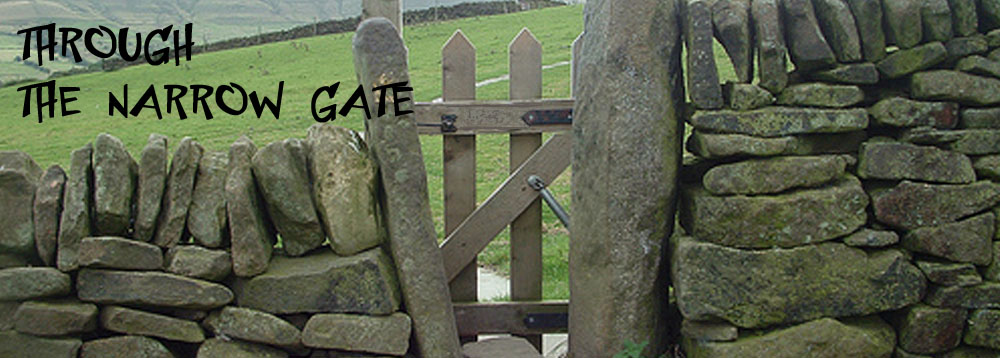For the past few months, I have been following a Bible reading plan that will take me through the entire Bible in one year. I try to do this once ever few years so that rather than focusing on specific books or passages I can get a broad overview of the entire landscape of Biblical theology. For the last few weeks I have found myself trudging through the book of Leviticus. Honestly, I have felt increasingly convicted because as I approach this book my mind seems to shut down and put forth only the effort to simply get through. Moses begins this chapter with very detailed and specific instructions for the correct way to slaughter animal sacrifices. Let’s face it, if this book were written today, PETA would have a fit! Yet there it is, right there in the pages of our sacred Scripture begging the question, “what does this have to do with me?”
“All Scripture is inspired by God and is profitable for teaching, for rebuking, for correcting, for training in righteousness, so that the man of God may be complete, equipped for every good work.” (2 Timothy 3:16-17 HCSB)
Do we honestly believe what Paul wrote to Timothy? If so then, why is it so hard for us to read the book of Leviticus? Why does it seem more like we’re trying to get through rather than learn something from it? Better yet, how might the words in Leviticus help us in our journey to be more like Christ?
I got to around chapter 11 of Leviticus before it finally hit me that these chapters are the very words of God to His people for a purpose. They may not directly apply to me today since it’s clear that these instructions belong to a different era under an Old Covenant. But the book of Leviticus does have application to us and it does have meaning for us. But it will take a little more work to see that meaning.
Here are some of my thoughts on the Book of Leviticus in response to my daily devotions.
1. The book of Leviticus gives us an outline for a religious system that would ultimately culminate in the crucifixion of Jesus. God’s instructions to the Hebrew people for the proper way to atone for their sins shows us that sin is a serious offense against God that requires serious consequences. Hebrews 9:22 tells us that, “without the shedding of blood there is no forgiveness.” (Hebrews 9:22 HCSB) The book of Leviticus sets the background and necessity for the Cross of Jesus. Through our reading, we should look to the cross and be thankful. “For this is the kind of high priest we need: holy, innocent, undefiled, separated from sinners, and exalted above the heavens. He doesn't need to offer sacrifices every day, as high priests do-- first for their own sins, then for those of the people. He did this once for all when He offered Himself. (Hebrews 7:26-27 HCSB)
2. God is Holy. In Christian circles we throw the word “holy” around a lot: we sing it; we preach it; and we talk about it. But do we really know what it means? Holy means to be set apart from everything else. As Holy, God is set apart from all that He has created; He is infinitely above us in all things and infinitely greater than all things. The main point of Leviticus is that God is perfect in His holiness. Mankind is far from holy. Leviticus show us just how inferior we are with respect to God and thus shows us the way in which man must come before God in order that we, who are imperfect and unholy, might have a personal relationship with a Holy and Perfect God. Ultimately, when we come face to face with God’s holiness, it should point us to our need for a savior and to the cross.
3. Worship should not be spontaneous and sporadic, but rather deliberate and thoughtful. Anyone who has read the book of Leviticus knows that God (through Moses) is very specific about the way in which His people are to worship Him. Leviticus contains great detail and precision concerning proper worship. Failure to approach God with reverence and humility can have grave consequences. Leviticus 10 interrupts detailed instructions concerning the sacrificial system to tell us the story of Nadab and Abihu. These sons of Aaron, the High Priest, did not follow the instructions of Moses concerning the worship of God and as a result God took their lives for their disobedience. God was serious and consequences were serious. How often do we approach God in a casual or irreverent way? I’m not talking about methods or models but about attitudes. What is our attitude when we approach God? Are we hoping to get something out of it? Do we leave feeling that God failed to show up for us? Or did we come to worship with the attitude that it’s all for Him?
Leviticus in undoubtedly a book that is difficult for Christians, living this side of cross, to identify with. It’s understandable that we might find it hard to believe how we might be edified by instructions for bloody sacrificial worship, but Leviticus tells us some pretty important things about God. When we approach Bible study, the most important question for us to ask is, “what does this tell me about God?” Leviticus at its most basic premise tells us that God is holy and must be approached with the utmost reverence and awe.

You read my mnd from about two months ago. Leviticus hits like a stone wall, but its a wall that our walk still demands we cross over it.
ReplyDelete-Don http://bondservant.us